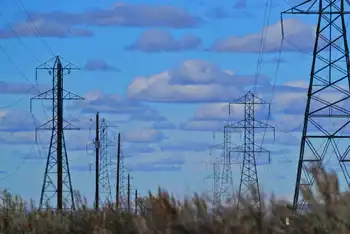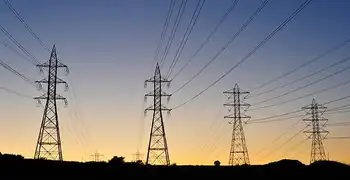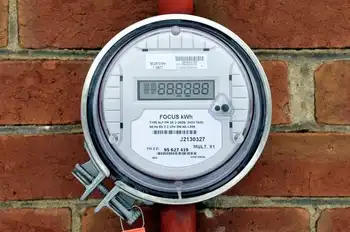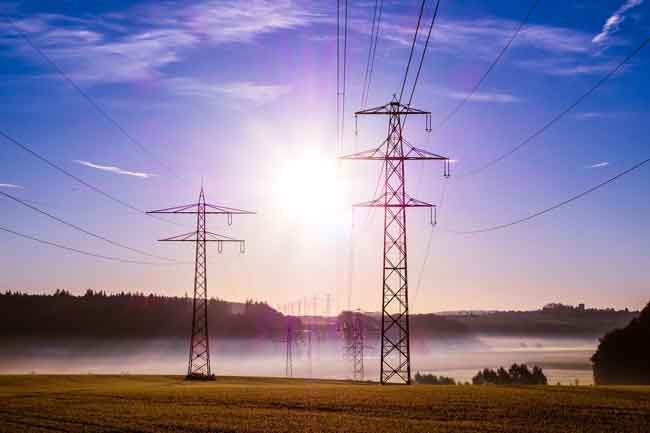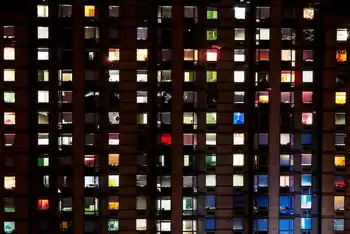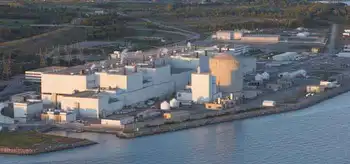Nevada enacts 'green energy' measures
By Las Vegas Sun
Protective Relay Training - Basic
Our customized live online or in‑person group training can be delivered to your staff at your location.

- Live Online
- 12 hours Instructor-led
- Group Training Available
Jim Baak, director of utility-scale solar for the nonprofit advocacy group Vote Solar, says Nevada was far more proactive than other sunny-state legislatures this year.
If some other objectives are met, large-scale solar is likely to become the focus of renewable energy development in Nevada for at least the short term, observers say.
Legislators had less to show in the way of incentives for homeowners and others to install rooftop solar devices and for the manufacturers of renewable energy equipment to build plants in Nevada.
Rose McKinney-James, a longtime solar energy advocate, had hoped to enhance the incentives to install rooftop photovoltaic panels and other forms of so-called distributed energy generation. But the state's main utility, NV Energy, fought back and said that a new requirement could cost ratepayers — and the company — too much.
"We were having this discussion at a very difficult time," McKinney-James said. "Everybody recognized that they faced some very significant challenges, and within that context I think that we achieved a great deal."
McKinney-James said she hopes changes in the operation of the rebate program will make it easier for people to sign up. She added that expansion of the rebates legislators did approve will create more rooftop solar setups in the state.
McKinney-James gave the session a just-decent rating, but large-scale solar developers were much more enthusiastic.
The developers had started the session worried that Assemblywoman Marilyn Kirkpatrick, D-North Las Vegas, would oppose the industry's request for a 75 percent property tax abatement and would seek a new tax on renewable energy.
Kirkpatrick was concerned that solar plants would not bring many permanent jobs to Nevada, and that solar plant construction jobs have gone to out-of-state workers in the past.
Developers pleaded with Kirkpatrick and presented studies showing that the state would still receive significant economic benefits from solar plants without a separate tax.
The final version of Kirkpatrick's bill included no additional tax. Instead, Kirkpatrick wrote in requirements for employers to pay at least a certain wage and added that some property taxes paid by solar plants would go into a state fund to offset rising costs for utility ratepayers.
Most notably, a new renewable energy commission, created in a Senate bill, would decide whether the financial benefits of a new solar power plant to the state outweigh the tax abatements before it approves abatements.
Legislators passed the bill after a flurry of last-minute revisions to give counties the final say over whether geothermal developers are given tax abatements.
The next battlefront for developers eyeing Nevada is with the federal government to free up Bureau of Land Management land for solar development and to speed up development of transmission lines to make it easier to transport energy into California.
The state's main utility, NV Energy, also got a big win through a last-minute provision to let it collect some of the savings ratepayers enjoy from conservation.
Ratepayers will take a big hit with that, their advocates insist. Former consumer advocate Timothy Hay says depending on how it's enforced by the Public Utilities Commission, the provision could cost ratepayers anywhere from millions to hundreds of millions of dollars.
Legislators also:
• Extended and increased the portion of Nevada energy that must come from renewable resources from 20 percent by 2015 to 25 percent by 2025. That ensures an expanding appetite for renewable energy in the state.
• Extended property tax abatements for renewable energy production plants, which were to expire in this year, and expanded them from 50 percent for 10 years to 55 percent for 20 years.
• Allowed geothermal power plants to receive property tax abatements.
• Created a renewable energy commission and transferred many of the duties of the governor's energy office to that body.
• Expanded a program that offers rebates for households and businesses that put solar panels on their rooftops and made changes in how the program is to be operated.





